Health Risks of Tobacco
Any kind of tobacco usage carries significant dangers for oral and overall health. Smoking, cigars, chewing tobacco, and vaping all have serious negative consequences on the tissues and structures of the mouth. What you should know is as follows:
The Dangers of Tobacco Usage
Any kind of tobacco use has serious risks to one's oral and general health. Whether a person chooses to smoke, chew tobacco, or vape, they are all introducing poisons and dangerous substances into their bodies, which can have a wide range of negative health repercussions. The use of tobacco products is well known for its link to lung cancer, respiratory disorders like COPD, and heart disease and stroke. Similarly, chewing tobacco increases the risk of oral cancer, gum disease, and tooth loss by exposing the sensitive oral tissues to carcinogens. Although vaping is sometimes thought of as a safer option, there are still hazards involved, such as the possibility of long-term health impacts that are not yet fully known, cardiovascular effects, and lung damage. Whichever way it is used, tobacco use is associated with a number of crippling health disorders, which emphasizes the significance of quitting efforts to reduce these risks and protect oral and general health.
Health Risks Associated with Tobacco
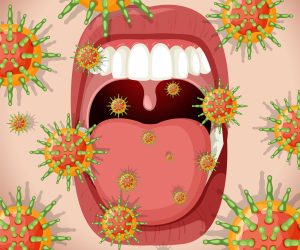
Oral Cancer
Smoking raises the risk of oral cancer by exposing the sensitive oral tissues to toxins. Leukoplakia, or white patches in the mouth, is another side effect that, if ignored, can develop into cancer.

Nicotine Addiction
Nicotine, a highly addictive drug, is found in tobacco. Frequent use can develop dependence, which makes quitting difficult and raises the possibility of switching to smoking or other tobacco products.
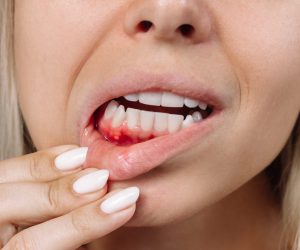
Gum Disease
In addition to irritating the gums, tobacco use increases the risk of gum recession, periodontal disease, and ultimately tooth loss. Chewing tobacco's abrasive properties also erode tooth enamel, making teeth more vulnerable to cavities and decay.
Health Risks Associated with Smoking
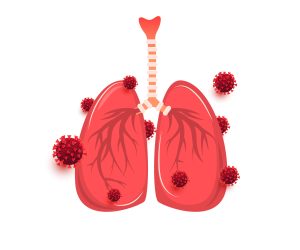
Lung Cancer
Lung cancer, chronic obstructive pulmonary disease (COPD), and other respiratory disorders are primarily brought on by tobacco usage. Smoking's harmful inhaled chemicals harm lung tissue and raise the possibility of contracting these potentially fatal diseases.
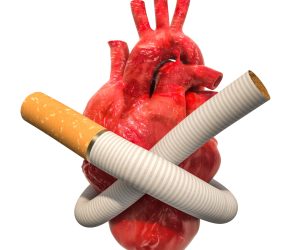
Cardiovascular Diseases
Nicotine, a highly addictive drug, is found in tobacco. Frequent use can develop dependence, which makes quitting difficult and raises the possibility of switching to smoking or other tobacco products.
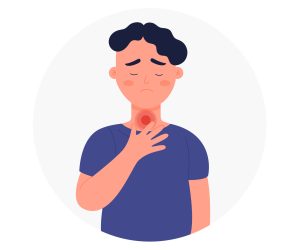
Cancer Risks
Besides oral cancer, smoking increases the risk of various cancers, including those of the throat, esophagus, larynx, pancreas, bladder, and cervix. The carcinogens in tobacco smoke damage DNA, leading to the uncontrolled growth of abnormal cells throughout the body.
Health Risks Associated with Vaping
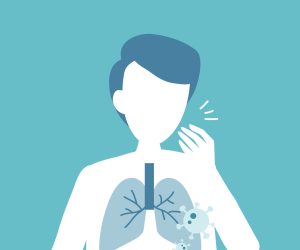
Respiratory Issues
The act of vaping exposes the lungs to dangerous chemicals and ultrafine particles, which can lead to lung damage, inflammation, and respiratory problems like wheezing, coughing, and dyspnea. Certain materials found in some vaping products have also been connected to dangerous lung diseases including EVALI (e-cigarette or vaping product use-associated lung damage).

Cardiovascular Effects
Although vaping is often perceived as a safer alternative to smoking, it still poses risks to cardiovascular health. Nicotine present in vape liquids can raise blood pressure and heart rate, increasing the likelihood of heart attacks and strokes, especially among those with underlying heart conditions.
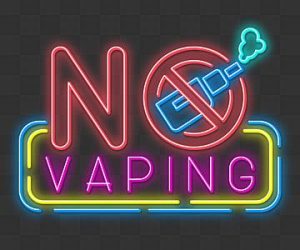
Long-Term Health Effects
Vaping is a relatively new phenomenon, and the long-term health consequences are not yet fully understood. Continued research is needed to assess the potential risks, including the development of respiratory diseases, cardiovascular issues, and other health concerns associated with prolonged vaping.
Benefits of Quitting Tobacco Use
- Improved Respiratory Health: The risk of respiratory infections, coughing, wheezing, and shortness of breath is decreased when smoking or vaping is stopped. Lung function becomes better with time, and the chance of having long-term lung conditions decreases.
Reduced Risk of Cancer: People who stop smoking have a decreased risk of developing malignancies in their mouth, throat, esophagus, lung, and other organs. The body becomes better at repairing damaged cells, which lowers the risk of developing cancer.
Better Cardiovascular Health: Weeks after stopping, cardiovascular health starts to get better. Over time, circulation gets better, blood pressure goes down, and the chance of heart disease and stroke goes down gradually.
- Enhanced Oral Health: Quitting tobacco leads to healthier teeth and gums. The risk of gum disease, tooth decay, oral infections, and tooth loss decreases, promoting overall oral hygiene and preventing future dental complications.
- Increased Life Expectancy: Quitting tobacco significantly extends life expectancy. With each year of abstinence, the body continues to heal, reducing the risk of premature death from smoking-related illnesses.
- Financial Savings: Quitting tobacco not only benefits physical health but also saves money. The cost of purchasing tobacco products, dental treatments for tobacco-related issues, and potential medical expenses due to smoking-related illnesses are significantly reduced, leading to long-term financial savings.
At-Home vs. Professional Treatments
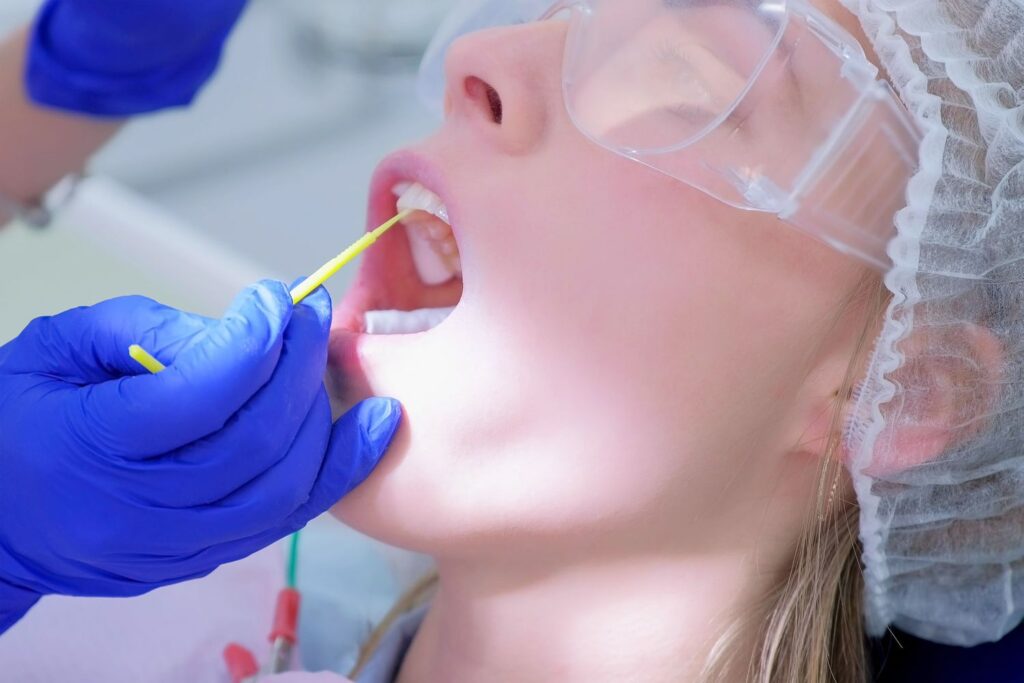
Tobacco cessation efforts at home, including quitting smoking and avoiding secondhand smoke exposure, are crucial for safeguarding health. However, seeking professional expertise through cessation programs and counseling offers tailored support and strategies for successful quitting, enhancing the chances of long-term tobacco-free living.
FAQ
Tobacco use can have various adverse effects on oral health, including:
- Gum disease (periodontitis): Smoking is a significant risk factor for gum disease, which can lead to tooth loss and other oral health complications.
- Tooth decay: Tobacco use can increase the risk of cavities and decay due to the presence of harmful chemicals and reduced saliva flow.
- Oral cancer: Smoking and smokeless tobacco use are linked to an increased risk of oral cancer, including cancers of the mouth, throat, and esophagus.
- Tooth discoloration and bad breath: Tobacco products can stain teeth and contribute to persistent bad breath (halitosis).
- Delayed wound healing: Smoking can impair the body's ability to heal after dental procedures, increasing the risk of complications and infections.
Smoking cigarettes poses several oral health risks, including:
- Increased risk of gum disease and tooth loss
- Greater likelihood of developing oral cancer
- Tooth discoloration and bad breath
- Delayed wound healing after dental procedures
- Reduced effectiveness of gum disease treatments
Smokeless tobacco products, such as chewing tobacco and snuff, can have detrimental effects on oral health, including:
- Increased risk of gum disease and tooth loss
- Greater likelihood of developing oral cancer, particularly in the cheeks, gums, and lips
- Tooth abrasion and wear from abrasive tobacco particles
Gum recession and tooth sensitivity
Yes, tobacco use, whether smoking or smokeless tobacco, is a significant risk factor for gum disease (periodontitis). Smoking weakens the immune system and impairs blood flow to the gums, making it harder for the body to fight off infection and inflammation. Over time, gum disease can lead to tooth loss and other oral health complications.
Tobacco use, particularly smoking and smokeless tobacco, is a leading cause of oral cancer. The harmful chemicals in tobacco products can damage the cells lining the mouth, throat, and esophagus, leading to the development of cancerous lesions or tumors. Regular tobacco use increases the risk of oral cancer, especially when combined with heavy alcohol consumption.
Yes, tobacco use can affect the success of dental treatments and oral surgery procedures. Smoking can impair blood flow to the gums and oral tissues, delaying wound healing and increasing the risk of postoperative complications, infections, and implant failure. Dentists may advise patients to quit smoking before undergoing certain dental procedures to optimize outcomes.
Yes, tobacco use can affect the success of dental treatments and oral surgery procedures. Smoking can impair blood flow to the gums and oral tissues, delaying wound healing and increasing the risk of postoperative complications, infections, and implant failure. Dentists may advise patients to quit smoking before undergoing certain dental procedures to optimize outcomes.
Quitting tobacco offers numerous benefits for oral health, including:
- Reduced risk of gum disease and tooth loss
- Lower likelihood of developing oral cancer
- Improved breath odor and tooth discoloration
- Enhanced wound healing after dental procedures
- Better response to gum disease treatments

